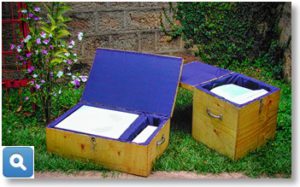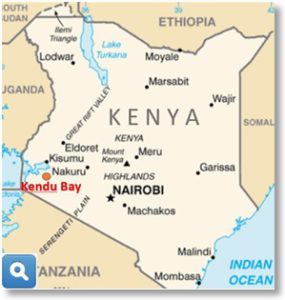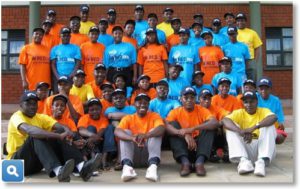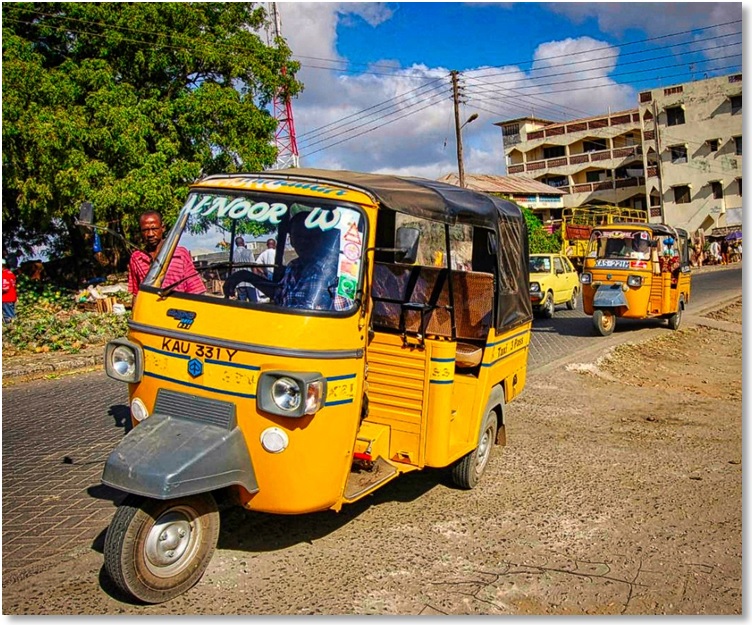A tuktuk, a small, noisy, three-wheel vehicle that serves as transportation for people and goods
In celebration of our 25th anniversary, WiRED is pleased to bring you stories from our archives. These articles provide a glimpse of WiRED’s early work as they depict the places and the projects we have focused on over the years.
WiRED began working in Kenya in the early 2000s, under a developmental grant from the U.S. National Institutes of Health. Our initial objective was to determine if we could use computers to teach young Kenyans about the prevention of AIDS, at a time when the mysterious illness was killing thousands around the world and decimating entire villages. We have written extensively about WiRED’s HIV/AIDS prevention programs in other posts on this Website. Read about our early history in Kenya here:
In Kenya, as in all the countries we work, we form partnerships with local NGOs, clinics, churches and organizations that have close relationships with people in the community. One of the most rewarding things we do is work shoulder-to-shoulder with local volunteers who present WiRED’s health education material in their communities. In those early days, these volunteers provided group training and made referrals to treatment and testing clinics. They often become pillars of support and encouragement for people who discovered they harbored the virus.

Today, WiRED trains community health workers (CHWs), but back in the early days, we trained people working with partner organizations how to teach others about HIV/AIDS. Sometimes, these volunteers would travel to distant villages and bring computers with them. When we say computers, we don’t mean the laptops we have today, we mean desktops and CRT monitors, which weighed nearly 50 pounds! They would carry this equipment on tuk tuks (a noisy, three-wheel, enclosed vehicle), in wheelbarrows and on bicycles. They sometimes would also bring solar powered batteries and generators to operate the equipment. Their outreach to people across Kenya saved many lives in the bleakest days of HIV/AIDS.
In the following story, Joseph Onduto, a young man who managed a WiRED Community Health Information Center in Kendu Bay, tells how, with great determination, his training crew was able to reach another village, without letting a bad-tempered river stand in their way.
From 2003
An Adventure in Service
By Joseph Onduto, Kendu Bay CHIC Coordinator
“This is an interesting account of the ups and downs of working in a Community Health Information Center in Kenya. The staff normally meets different obstacles along the way — from rough roads and bad weather to hostile clients. This time they literally have to cross a raging river. What is admirable is their neverending enthusiasm to serve people despite adversity.”
— Pauline Karani, Program Manager, WiRED, Kenya

Kendu Bay is never quiet by day or night—even its rivers don’t rest! Generally, it is common to see donkeys carrying water or women carrying sugarcane as they cross the river, Awach. On this day, the locals could witness a most unusual sight—the WiRED staff from the Kendu Bay CHIC on their way to a local school in Nyangajo carrying health awareness information across the river.
I guess I should explain how we got to the river in the first place as we do not normally adventure across the Awach to Nyangajo. We usually cross a familiar bridge, however the problem is that it takes much longer to get to Nyangajo. One of the members of the local community suggested that we take a shortcut. I mentioned that the river Awach is treacherous, but was told that, recently, a wooden bridge was constructed across the river.

So we took it on faith and headed towards Nyangajo. Many times, community members are anxious to assist strangers to achieve their goals; and, so, we got to the “bridge” via shortcut. Unfortunately, torrential rains had partially washed it away. This left us with one choice: SWIM! We reached our destination faster than we had originally thought, albeit wetter, but committed to the task ahead. Although we were soaking wet (talk about workplace hazards!), we completed our goal, which was to create an awareness regarding HIV/AIDS, and inform the students about our services at the CHIC.
Although our adventure in service created many challenges and obstacles that day, we did not get discouraged since we are driven by our duty to serve our communities. We are dedicated to a lifelong commitment to education, and that includes ourselves since we learned the day we crossed the river that taking a shortcut isn’t always the best option.




